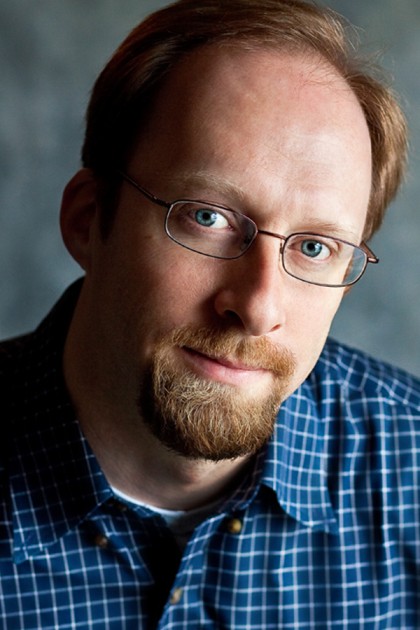
Image caption: Jonathan Plucker
Image credit: KIP MAY
Jonathan Plucker, a prominent education policy and talent development scholar, will join Johns Hopkins University in January as the inaugural Julian C. Stanley Professor of Talent Development.
This joint appointment between the School of Education and the Center for Talented Youth reflects Johns Hopkins' commitment to interdisciplinary research and to advancing the science of learning.
"In his exceptional career to date, Jonathan Plucker has been a compelling and informed voice speaking to the needs of students at all points on the learning spectrum," says Elaine Hansen, executive director of CTY. "His leadership in defining the excellence gap as a critical dimension of all educational improvement is particularly key to advancing and integrating the unique strengths of JHU's School of Education and the Center for Talented Youth."
Plucker's collaborative research and teaching cover a wide range of disciplines, including educational psychology, cognitive psychology, education policy and leadership, and social science methodology. He studies high-achieving K-12 learners and talent development, as well as creativity and intelligence. Much of his focus on advocacy at both national and state levels concerns closing the gap at the highest achievement levels between students from more affluent white and Asian groups, and students from lower socioeconomic and underrepresented minority groups. Recent studies by Plucker and his colleagues concerning the excellence gap include the 2010 report "Mind the (Other) Gap!: The Growing Excellence Gap," 2013's "Talent on the Sidelines: Excellence Gaps and the Persistence of America's Permanent Talent Underclass," and "Equal Talents, Unequal Opportunities: A Report Card on State Support for Academically Talented Low-Income Students," published earlier this year.
"What is thrilling about this appointment is that Dr. Plucker's research will complement and advance the School of Education's commitment to personalized learning," says David Andrews, dean of the School of Education. "Dr. Plucker's research punctuates the need to support all learners in a manner that maximizes his or her academic growth regardless of socioeconomic status or prior educational opportunities."
Plucker comes to Johns Hopkins from the University of Connecticut, where he is the Raymond Neag Endowed Professor of Education in the Neag School of Education. Before joining UConn, he was the director of the Center for Evaluation and Education Policy at Indiana University. He holds a PhD in educational psychology with an emphasis in statistics and research methodology from the University of Virginia, and an MA in educational psychology with a focus on special education and a BS with honors in secondary chemistry, both from UConn.
He has published more than 200 articles, chapters, and reports, and he has received numerous honors for his work.
"The Johns Hopkins School of Education and CTY are among the most prestigious and important such institutions in the world today. To be able to participate in their dynamic work, which is changing the lives of children every day, is truly the opportunity of a lifetime," Plucker says. "JHU's focus on both excellence and equity is unique, and its faculty, staff, and students go beyond theory and research to create real change in children's lives. And to help continue the work begun by Julian Stanley is both a great honor and great responsibility. It is tremendously exciting to be part of all this work."
The Julian C. Stanley Professorship is named for the late Johns Hopkins psychologist and pioneer in the field of gifted education. Stanley's research into how academically advanced students learn best led to CTY's founding in 1979.
"Julian Stanley would have celebrated his 100th birthday on July 9, 2018," Hansen says. "I can't think of a more fitting tribute to the legacy of this education pioneer than the appointment of such a world-class scholar as Dr. Plucker."
Tagged faculty







